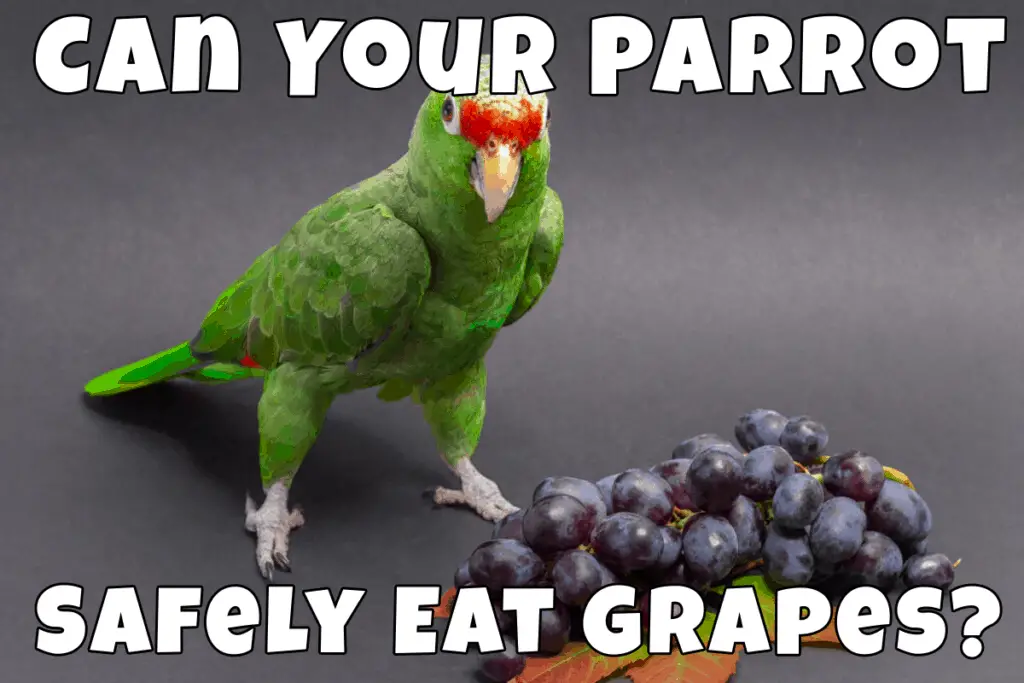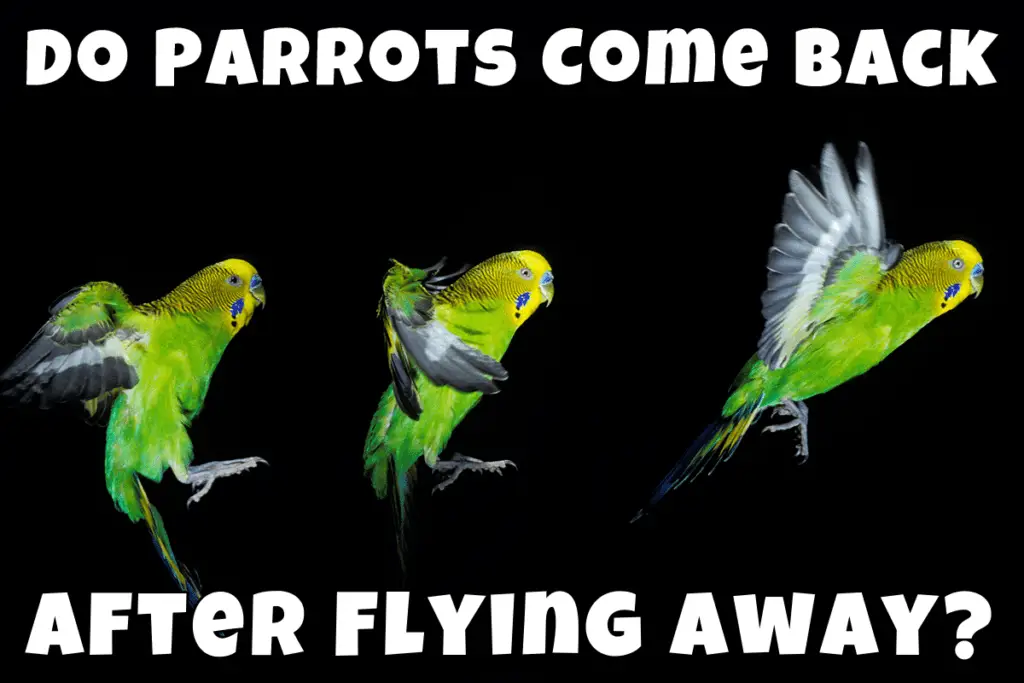A parakeet’s diet is one of the most common questions I get from my friends. Considering the popularity of these tiny birds as pets and the importance of a balanced diet for parrots, there is no wonder all owners are interested in the question. So today, I’ve decided to cover in detail what parakeets eat and what you should definitely include in their diet.
The central part of the parakeets’ diet consists of pellets, around 70 percent. In addition, it’s recommended to include the following product types in parakeets’ diet:
- vegetables and greens
- fruits
- seeds
- nuts
- eggs on occasion
Note that seeds and especially nuts should be limited to the role of treats because of their high content of calories and fats. However, these are healthy fats that are beneficial in moderate amounts.
Parakeets do need a varied diet, just like humans. They need to get all the necessary macroelements for their food. This diet plan is heavily based on the natural foods they live in the wild. Plus, parakeets can indulge in occasional insects for protein. But we’ll be giving them plenty of protein without “lively meat.” Though, they can eat chicken and some other meats! Check in the article.
Can Parakeets Overeat? Beware the Dangers
What Pellets and Seeds to Feed Parakeets?
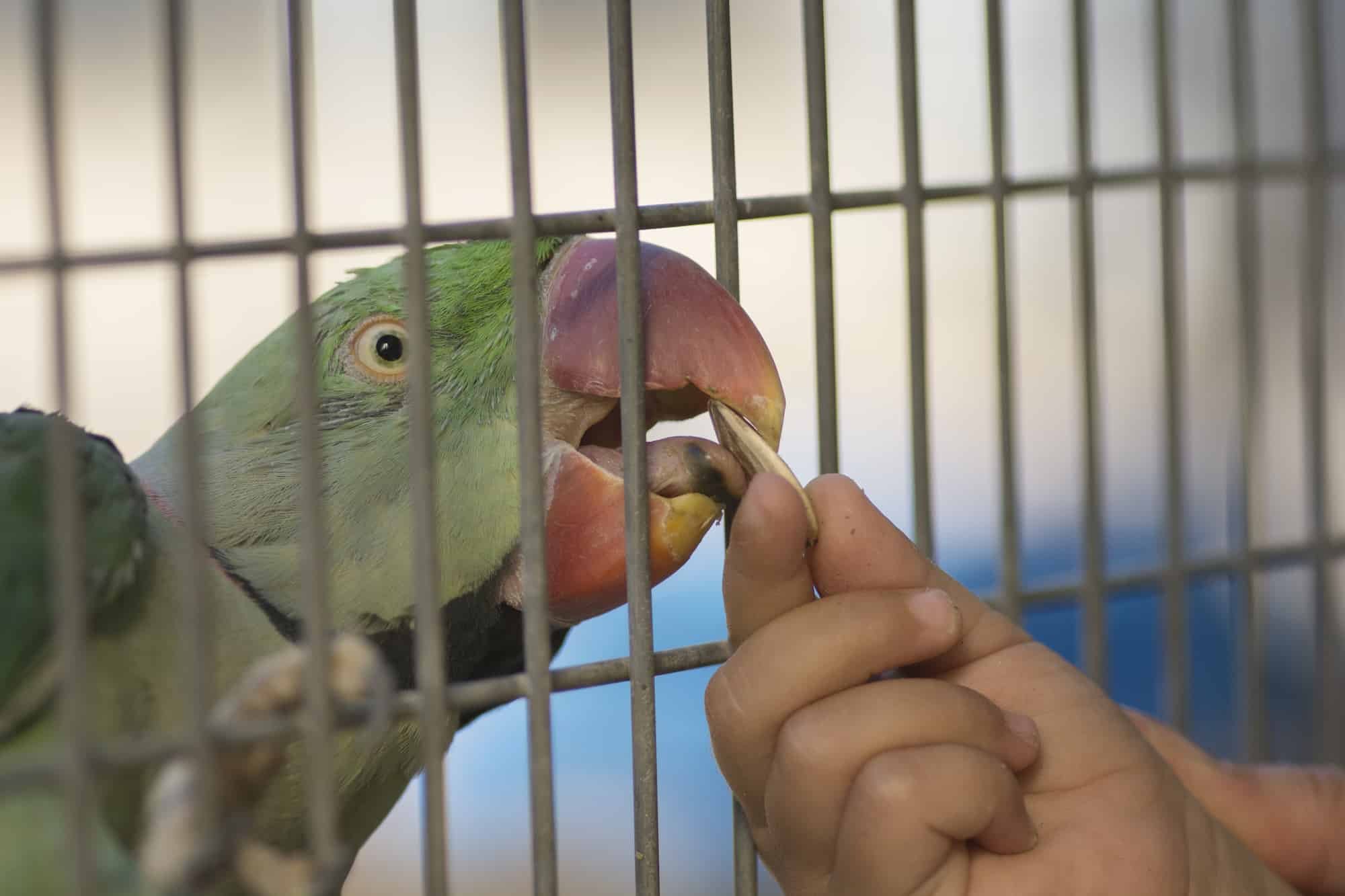
Pellets should take up around 70 percent of your bird’s diet. I suggest buying pellets from the trusted vendors only as they constitute a major part of the bird’s diet. Make sure the base is as high-quality as you can afford. You can check the rating of the best pellets of 2021 in my previous article for some high-quality and budget-friendly options. The serving size is usually given on the package.
There are pellet mixes with added vitamins and nutrients. So, you should check with your vet what foods to reduce and what to increase based on that.
The recommended norm for those tiny parakeets is around 1/2-1 teaspoon of seeds per day.
Usually, owners buy seed mixes for their pets. They usually consist of three highly popular seed types
- sunflower
- safflower
- millet
As for the nuts, they should be a small part of a bird’s diet and only be given as a treat. But they contain good fats and plenty of nutrients – include them regularly.
Among the most common nut options are
- pistachios
- walnuts
- almonds
- pecans
Peanuts are a controversial option – many owners are afraid of them due to the possible traces of aflatoxin, dangerous for parrots. However, I believe that high-quality peanuts from the best vendors and proper storage conditions are safe and beneficial for birds. Please, read the detailed article on peanuts to know the possible danger.
Do Parakeets Eat Watermelon? Is It Safe?
What Are the Benefits of Fruit and Vegetables for Parakeets?
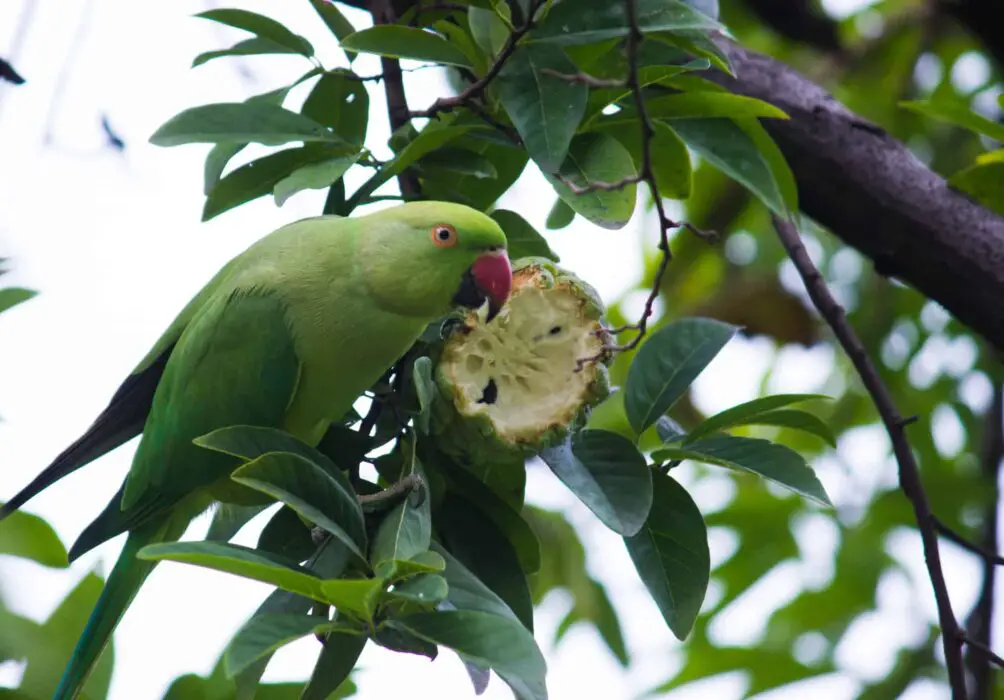
This category of food is super important. Fruit and veggies contain the most considerable amount of beneficial vitamins and elements that your parrot cannot live without. This is especially clear in veggies; fruits should be somewhat limited, just like seeds and nuts.
Both veggies and fruit are responsible for the health of your bird, not only energy-wise. They make your parrot’s feathers shiny, skin healthy, and overall health without issues. If your bird doesn’t get proper nutrition, its lifespan is going to be shorter, and it’ll suffer from numerous illnesses.
Fruits should take around 5-10 percent of the day’s plan. Not more. Veggies should be plentiful as they are the safest and most beneficial part of the foods, around 20 percent. Give preference to the leafy greens as they are packed with nutrients and low in calories.
Most vegetables and fruit are saved for parrots as they eat them in abundance in the wild. However, I suggest checking the “hazards” category here to learn which are dangerous. Plus, it’s highly recommended to check each product separately.
Among the most popular and liked veggies and greens options are:
- carrot
- zucchini
- cucumbers
- pumpkin
- bell peppers
- butternut squash
- broccoli
- fennel
- herbs
But no tomatoes! They can be harmful to parakeets.
Can Parakeets Eat Bananas? Parrot’s Diet Advice
Remember that fruit are high in sugar, carbs, and calories. Thus, it should limit their amount no matter how much your parakeet will love them. And it’ll love them immensely.
Among the beloved fruits are:
- apples
- pears
- cantaloupe
- grapes
- watermelon
- bananas
- oranges
- pineapple
- goji
With this said, I’d like to highlight the danger of one product that is super common in our kitchens today – avocado. It may be nutritious for you, but it’s deadly for parakeets.
Another important question – can I cook for my parakeet?
Yes, there are some vegetables, seeds, and nuts that you can bake without added oils. Also, you can make a tasty smoothie for your bird and freeze it or give it fresh.
If you decide to give your parrot an egg for a protein boost, you should also boil it.
And you can make fruit bowls and salads with the allowed products for your pet.
Technically, most food doesn’t need to be cooked for parakeets, but it can be a nice touch to feel more like preparing for the family than simply feeding a pet.
What Foods Are Dangerous for Parakeets to Eat?
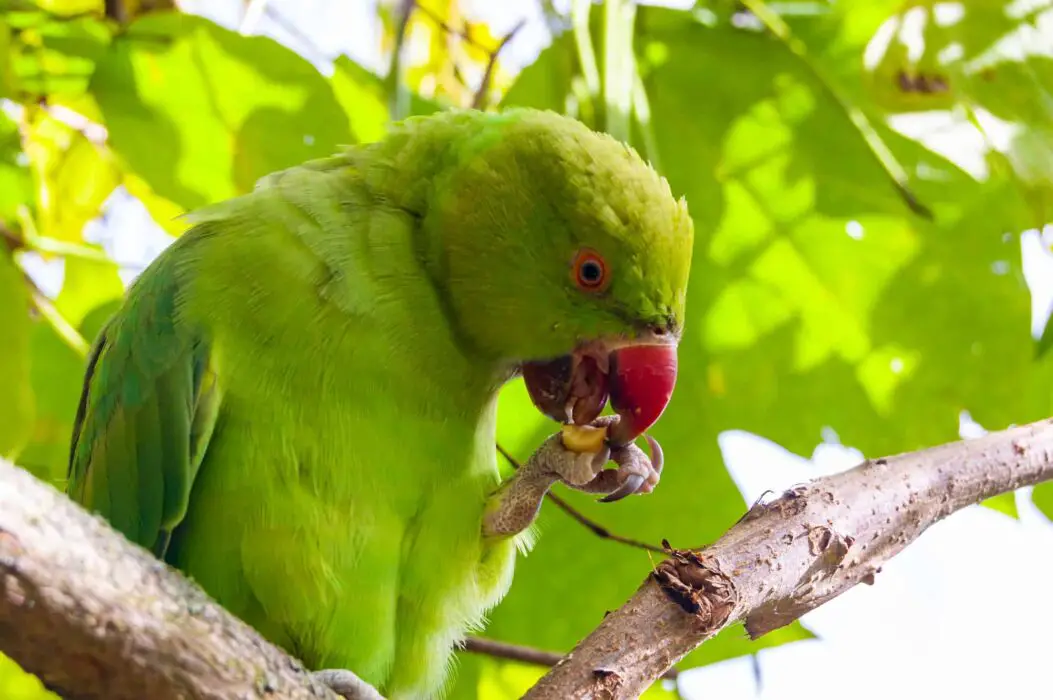
I’ve already mentioned the dangers of tomato and avocado for your tiny friend. However, several other products in your kitchen are also harmful to parakeets.
- chocolate
- dairy
- garlic
- tomato avocado
- coffee
- anything processed
- most fruit pits
Please, avoid these products and keep the macronutrient division (carbs, fats, protein) balanced. No need to overfeed parakeets as well. I’ve already mentioned the dangers of that.
Why Do Parakeets Kiss Each Other?
Parakeet Won’t Eat Fruit and Vegetables?
If that’s so, the bird probably doesn’t like the taste or the texture of what you give. There are several options you can try:
- Make a smoothie, and add other nutritious foods as well.
- Chop it differently or mashup.
- Certain vegetables taste better for picky parakeets when baked, like a pumpkin.
There are many ways to change the food preferences of your parrot, but is it really necessary?
There is one other possibility, a lot more worrying. Your parrot may refuse food if it suffers from health issues. So, please, visit a vet just in case.
Do Parakeets Have One Mate for Life?
Parakeet Sickness Signs
Any deviations from the regular eating habits of your parrot may indicate an illness. However, even if you don’t see clear signs of anything being wrong, you need to make an appointment with the vet to check for internal issues. The same concerns strange drinking habits as well.
Plus, you can also judge your pet’s condition via its feathers. Shiny, healthy-looking feathers are always a beauty. If they become dull, fall off, or are just not slick, a vet awaits you!
All in all, keeping your parakeet’s diet healthy is the most important rule for any parrot owner. Their digestive system is sensitive and requires a balanced diet. I hope you manage to find a healthy diet plan for your bird with the help of detailed product reviews on this website.

